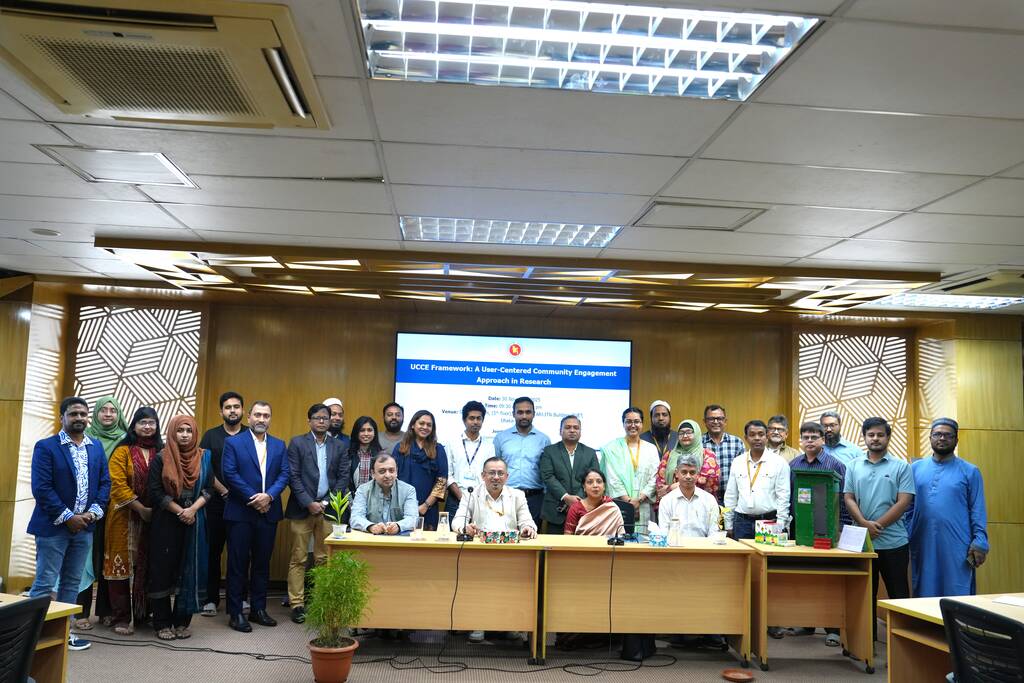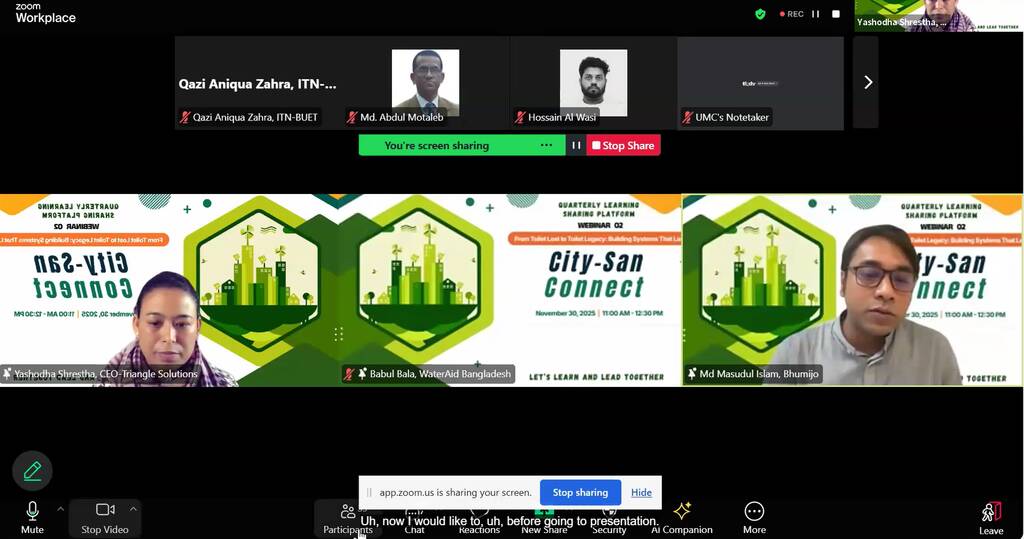Groundwater is an important source of safe drinking water in low-income countries. However, in some countries, arsenic contamination in groundwater poses significant health risks, including cancer, liver disease, coma, and even death.
In Nepal, arsenic contamination is a major issue in drinking water supply systems that rely on groundwater. To address this problem, ITN-BUET, in collaboration with the Geological Survey of Finland (GTK), organised a specialised training on Arsenic Removal Technologies and Arsenic Mitigation from 4 to 8 May 2024. Ten government officials, including engineers and chemists from the Department of Water Supply and Sewerage (DWSSM) and the Ministry of Water Supply, Nepal, attended the training.
The training aimed to support Nepal in increasing the coverage of safe water supplies in arsenic-affected areas. Organised under the project “Towards Arsenic Safe Drinking Water in Nepal (NeAs),” funded by the Finnish Ministry for Foreign Affairs, the training provided participants with valuable knowledge on sustainable arsenic mitigation management through instructor-led sessions, group work, lab demonstrations, and field visits.
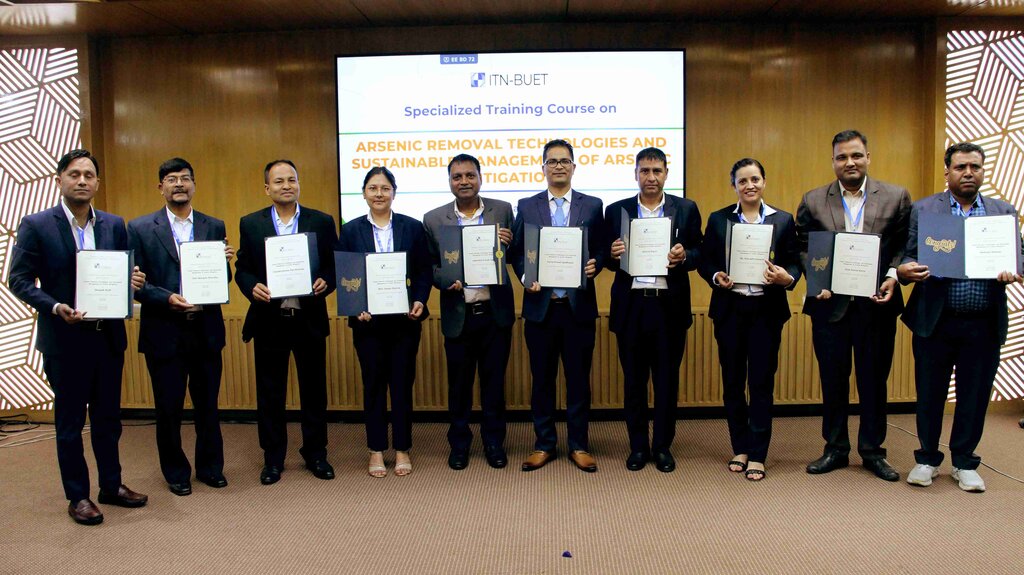

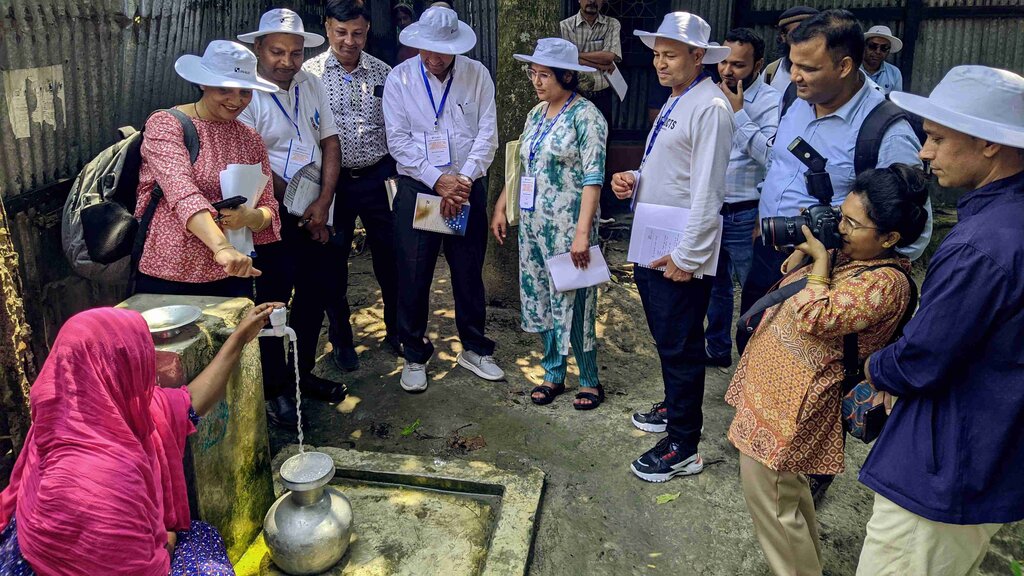
Prof. Dr. Tanvir Ahmed, Director of ITN-BUET, Dr. M. Ashraf Ali, Professor at BUET, Mr. Alauddin Ahmed, Project Manager of ITN-BUET, Mr. A.H.M. Khalequr Rahman, Superintending Engineer of DPHE, and Mr. Maharam Dakua, Resource Person at ITN-BUET, facilitated the training sessions. Additionally, Dr. Md. Ehosan Habib from BUET conducted the lab demonstrations. During the training, they had the opportunity to meet with the Vice-Chancellor and the Pro-Vice-Chancellor of BUET, as well as the Chief Engineer of DPHE.
The five-day training also included knowledge-sharing visits to the Cumilla City Corporation Water Treatment Plant, the Chikonia Rural Water Treatment Plant of Laksam, and the VERC-UNICEF Operated Rural Water Treatment Plant of Daudkandi, located in the Cumilla District. After these visits, Ms. Nargis Akter, WASH Officer of UNICEF Bangladesh, delivered a presentation on a case study about the ‘GoB-UNICEF Arsenic Safe Union Approach,’ which is currently implemented in 30 unions across Bangladesh.
The participants gained an understanding of both global and regional contexts, including existing policies and mitigation strategies. Additionally, they learned to conduct vulnerability analyses following arsenic screening to identify hotspots and implement effective arsenic removal technologies tailored for urban and rural areas. Furthermore, they learned to ensure equitable resource allocation and site selection based on community situation analysis to support poor and vulnerable populations in arsenic-affected areas.
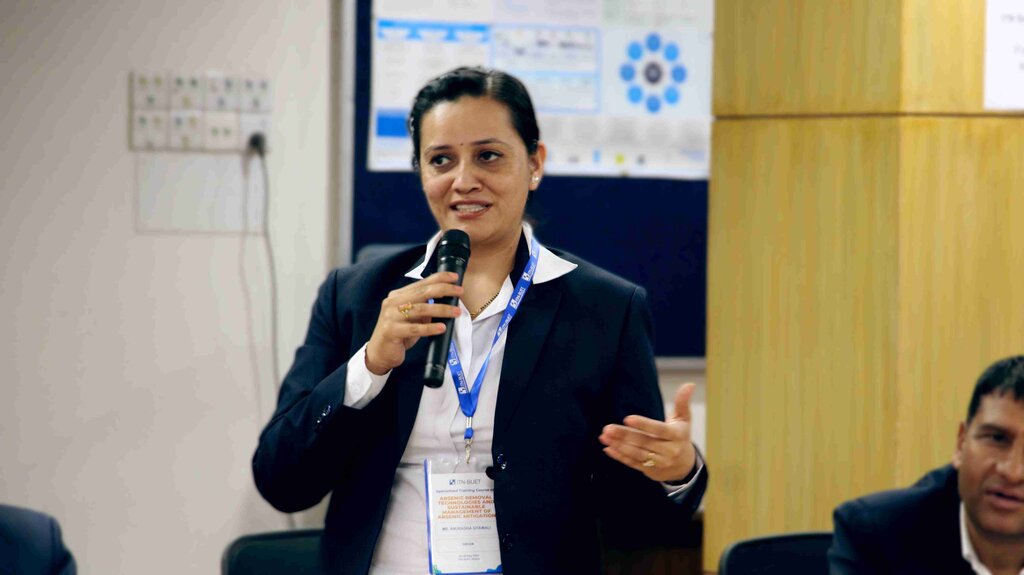


At the closing event, Ms. Anuradha Gyawali remarked, “The training gave us the opportunity to observe the technologies being implemented in Bangladesh. After attending the training, we are confident that we will focus on arsenic mitigation rather than removal.” Mr. Lokendra Prasad Yadav added, “We have learned a lot from the training, covering diverse aspects of arsenic mitigation. The data management skills we acquired will be beneficial for us in Nepal.” Prof. Dr. Tanvir Ahmed emphasised that even with all the policies and action plans were in place, Bangladesh is still struggling to ensuring sustainable management to mitigate the effects of arsenic. He further mentioned that ITN-BUET had been playing a significant role in conducting research, offering technical assistance, and shaping national policies for arsenic mitigation ever since arsenic was identified in the groundwater of Bangladesh and hoped that this training would help the Nepal Government to tackle the arsenic crisis by learning from the experience in Bangladesh.



